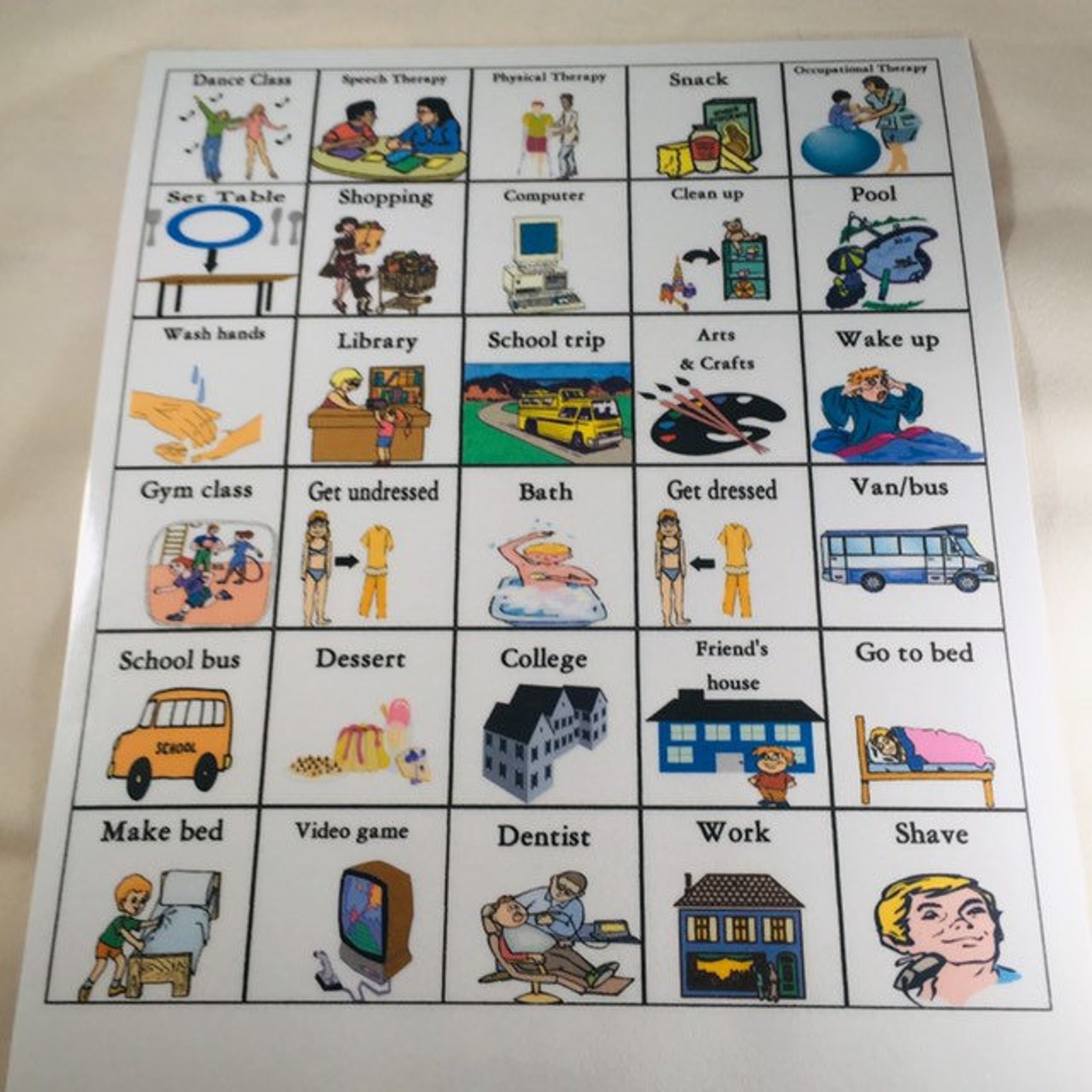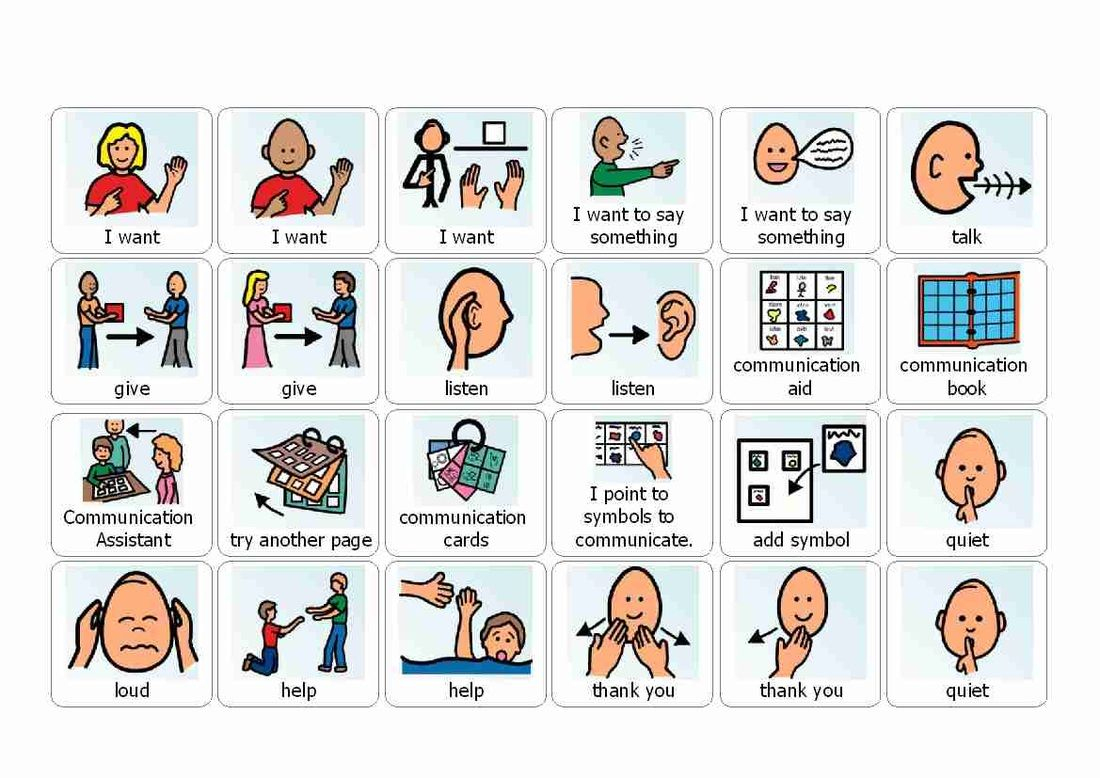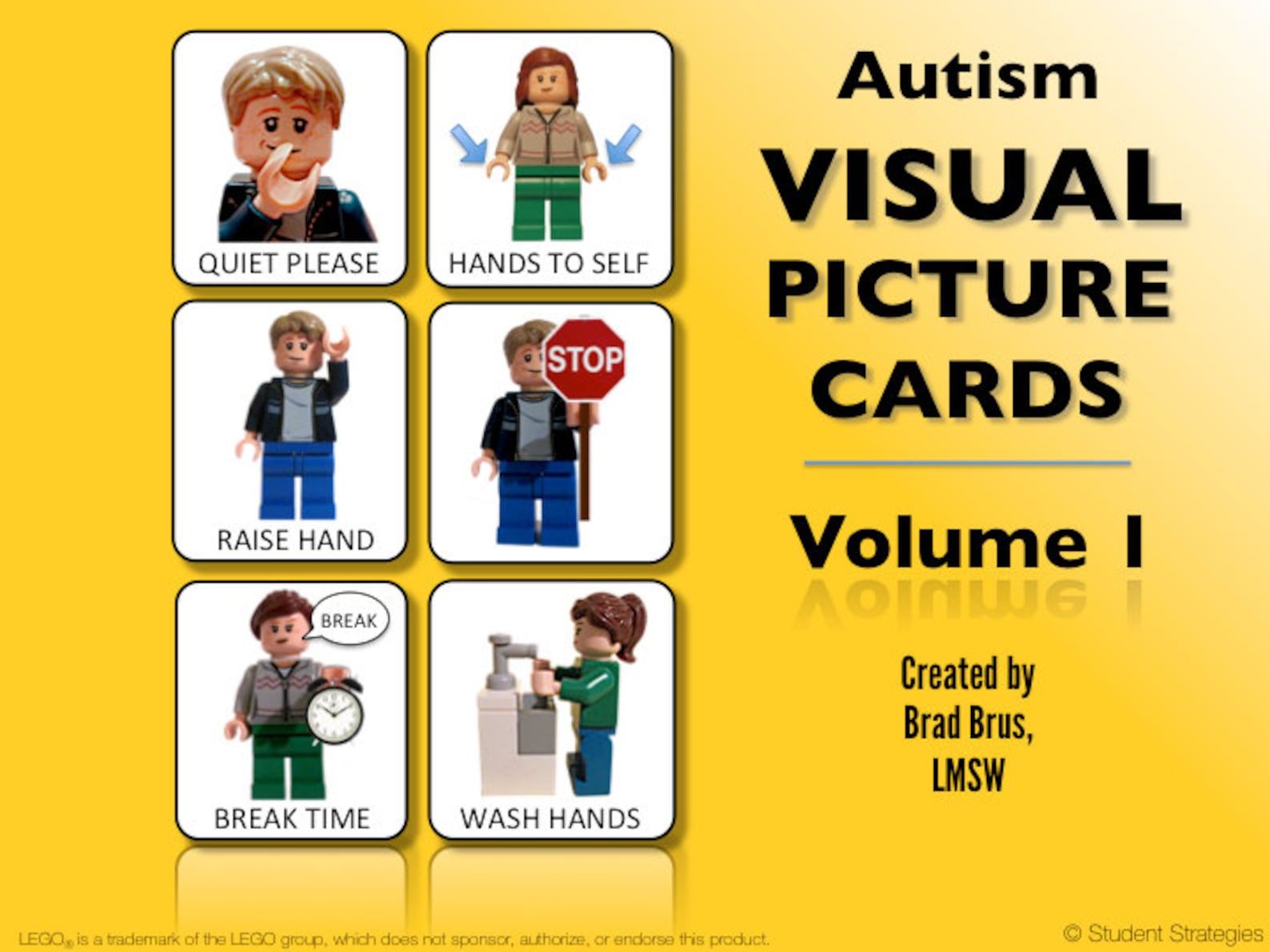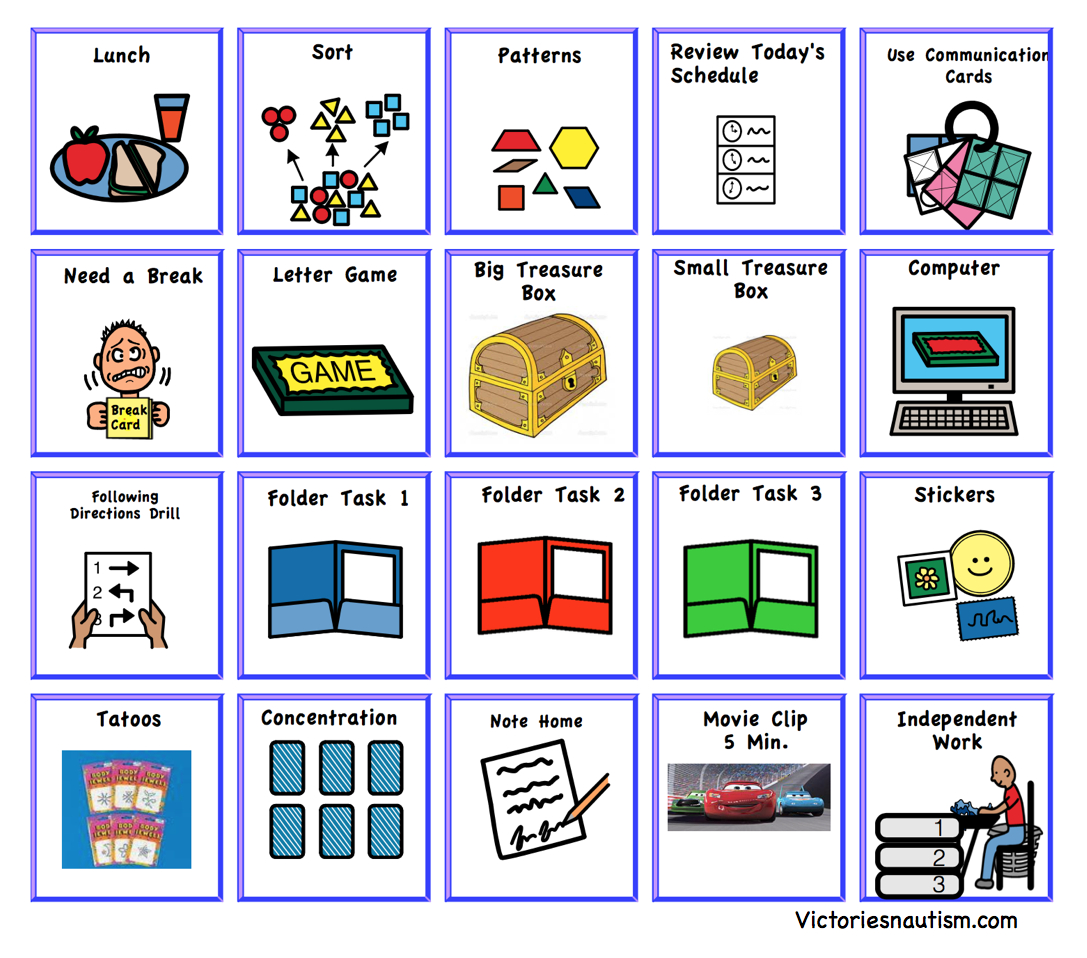
Printable Autism PECS Visual Aid Communication Cards For Etsy
Visual/spatial intelligence refers to spatial judgment and the ability to visualize with the mind's eye. We use visual intelligence when we navigate space, put together puzzles, memorize maps, and envision the layout of a room.

Free Printable Picture Communication Symbols Free Printable
These free printable visual cue cards for autism or other classrooms display positive behaviors. Rules such as Quiet Mouth, Quiet Hands, Listening Ears, etc. Cut and laminate to post around your room or on the individual desks of learners who need extra reminders. Provide them with easy visual reminders that you can point to or tap whenever needed.

Buy 37 Pcs Autism Communication Card Visual Aid Special Ed Nonverbal Communication Board Autism
Save and print Laminate the whole card or cut out card and use wide, clear tape to preserve/protect the card Cut out with tabs With a hold puncher, punch out the holes on the upper left circles on the cards Place cards in an order and add metal ring, lanyard or key chain Keep within reach and use when needed (example of printed cards)

Amonev Special Needs My Communication Cards For Special Ed, Speech Delay Non Verbal Children And
Visual schedules (also known as visual timetables) provide visual information (real objects, photographs, pictures or words) about planned events. Visual schedules can provide information about: what is happening 'first and next' the steps in an activity the tasks to complete in a session the timetable of a whole day a weekly timetable or longer.

Pin on Teach Language Arts to Your Autistic Child (Reading, Vocabulary, Grammar, Writing, Idioms
Visual supports are a communication tool that can be used with autistic people. They can be used in most situations, are adaptable and portable. Visual supports can help to: provide structure and routine encourage independence build confidence improve understanding avoid frustration and anxiety provide opportunities to interact with others.

Behavior Management Picture Cards. Freebie Autism visuals, Picture cards, Autism behaviors
Visuals supports can be pictures, objects, sign language or text. They can come in a variety of forms. Some examples of programs that generate visuals are: Boardmaker (Mayer-Johnson) - This popular software generates Picture Communication Symbols (PCS) and other graphics. The draws are line drawings and not actual photos.

Visual Picture Cards for Children With Autism Etsy
When to use: Use to replace or reinforce verbal directions. Use to quickly and quietly redirect a student. Make sure that the student has the desired skill before using behavior cards. A student must be taught how to "sit in seat" before a visual will help them remember to sit in their seat. Think about what you want the desired behavior to.

Buy My Daily Routine Cards 27 Flash Cards for Visual aid Special Ed, Speech Delay Non Verbal
Visual supports and visual schedules are used to help autistic children improve their skills in: processing information understanding and using language understanding and interacting with their physical and social environments. Visual supports can have many purposes.

Autism Picture Cards Free Printable Free Printable
Visual supports (sometimes known as 'visuals' or 'visual cues') provide students with visual information about activities, rules, routines and skills. They can add meaning to spoken information. This means that they can be helpful for students with language difficulties who have trouble understanding what is said.

Printable Cue Cards For Autism Printable Word Searches
With the free printable visual cue cards from Goally, you and your child will be on your way to better communication. Once you see how great social cue cards for autism are, you may be ready to go digital with Goally.

Sequence Cards for Visual Supports Lining up with Class Kindergarten behavior, Preschool
Visual autism aids, visual supports, or visuals for autism printables come in various forms like images or text, for example. They are often used by teachers to support students' understanding of certain subjects or topic areas. Visual aids are frequently used as part of a multisensory learning approach for children with SEN needs.

Daily Routine Chart, Visual School Schedule Chore Board, Autism PECS Visual Aid Communication
Home Routine Visual Pack - Save 10% 3 resources in 1 pack for all your visual supports to get started picture exchange as a form of communication at home. Pack includes Activity Choice Folder, Food Choice Folder and Weekly Picture Schedule. More info Daily and Weekly Routine Combo Pack - SAVE 10%

Visual Tools Working with autistic children, Autistic children, Autism activities
Visual cue cards are a proven visual support tool that visually communicates a need or a behavioral expectation. Four of the most commonly used cue cards are: Take a Break, I Need Help, Stop, and Wait. Below is a deeper explanation of these cards with tips on how to use them. Take a Break Card

Picture Cards For Autism Printable Coloring pages
Autistic children can refer to these cards to remind them of how they should behave during group times. You could hand the behaviour visuals for Autism out to the children, or you could stick them on the wall for everyone to see. Some behaviour examples on the behaviour visuals for Autism include: hands up to speak; crossed legs; sitting quietly;

Spectacular Printable Flashcards For Autism Usmle Step 1 Pharm
Children with autism benefit from a visual cue when following one step directions. These cards are great to work on gross/fine motor skills, turn taking, motor imitation, receptive/expressive language, and following directions! Great to work on ABLLS tasks. They were actually fairly easy to set up. If you cut the circle up - you can fit 6 on.

Buy 27 Autism Communication Cards Visual Aid Nonverbal Communication Board Speech Delay Feelings
This publication may be distributed as is or, at no cost, may be individualized as an electronic file for your production and dissemination, so that it includes your organization and its most frequent referrals. For revision information, please contact [email protected], (615) 322-5658, (866) 936-8852.